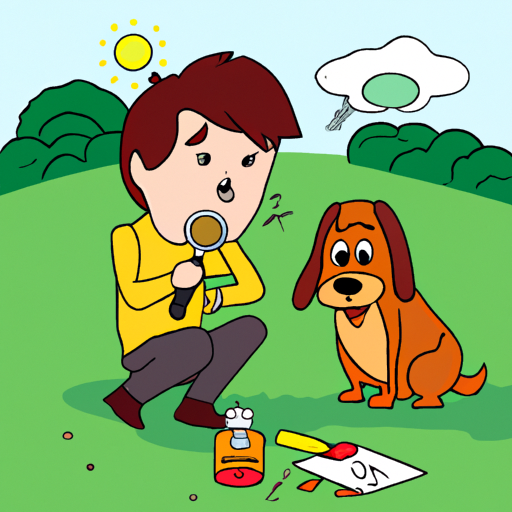As a caregiver, it’s only natural that you’re always on the lookout for any changes in your dog’s behavior or health. One particular concern you may have noticed is the change in your dog’s stool color and consistency, specifically to yellow and runny. This might alarm you, but understanding the possible causes can help you take the appropriate next steps.
1. Dietary Changes
You may have recently switched your dog’s diet, or perhaps they’ve managed to get into something they shouldn’t have.
- A sudden change in diet can cause digestive upset, leading to yellow, runny stool.
- Foods rich in fat or not typically part of your dog’s diet can cause yellow diarrhea.
- Some dogs may even have food allergies that manifest in this way.
If you suspect diet to be the culprit, you may want to consider implementing a bland diet or slowly transitioning food types over a period of time.
2. Infections and Diseases
Canine diseases and infections can drastically affect stool color and consistency, including:
- Parvovirus: A highly contagious viral disease that can cause severe diarrhea, often yellow and bloody.
- Liver Disease: The liver plays a vital role in digestion, and any issues with it can affect stool color.
- Pancreatitis: An inflammation of the pancreas that can result in yellow, fatty stool.
If you notice other symptoms like vomiting, lethargy, or lack of appetite, it’s best to consult with your vet immediately.
3. Parasites
Parasites are an unfortunately common cause of yellow, runny stool in dogs.
- Roundworms, hookworms, whipworms, and giardia are parasites that can cause such symptoms.
- Regular deworming can help prevent parasite infestations.
4. Stress
Just like humans, dogs can suffer from stress-related digestive issues.
- Changes in environment or routine can cause your dog to develop yellow, runny stool.
Try to identify any potential sources of stress and eliminate them if possible. Regular exercise and mental stimulation can also help manage stress levels in your dog.
5. Digestive Disorders
Certain digestive disorders can cause chronic yellow, runny stool.
- Inflammatory Bowel Disease (IBD) and Exocrine Pancreatic Insufficiency (EPI) are two such conditions.
- These conditions require a vet’s diagnosis and treatment plan.
FAQs
Q: How long should I wait before consulting a vet?
A: If symptoms persist for more than a day, or are accompanied by other worrying signs like vomiting or lethargy, you should consult with your vet immediately.
Q: Is yellow, runny stool contagious to other pets or humans?
A: It depends on the cause. Some infections and parasites can be contagious. Always practice good hygiene and consult with your vet.
Q: Can I prevent my dog from getting yellow, runny stool?
A: While you can’t prevent all causes, regular vet check-ups, a balanced diet, and stress management can reduce the risk.
Q: Can medication cause yellow, runny stool?
A: Yes, certain medications can cause changes in stool. Always inform your vet of any medications your dog is taking.
Remember, as a caregiver, your vigilance plays a crucial role in your dog’s health. Stay informed, stay observant, and when in doubt, consult with the professionals.



